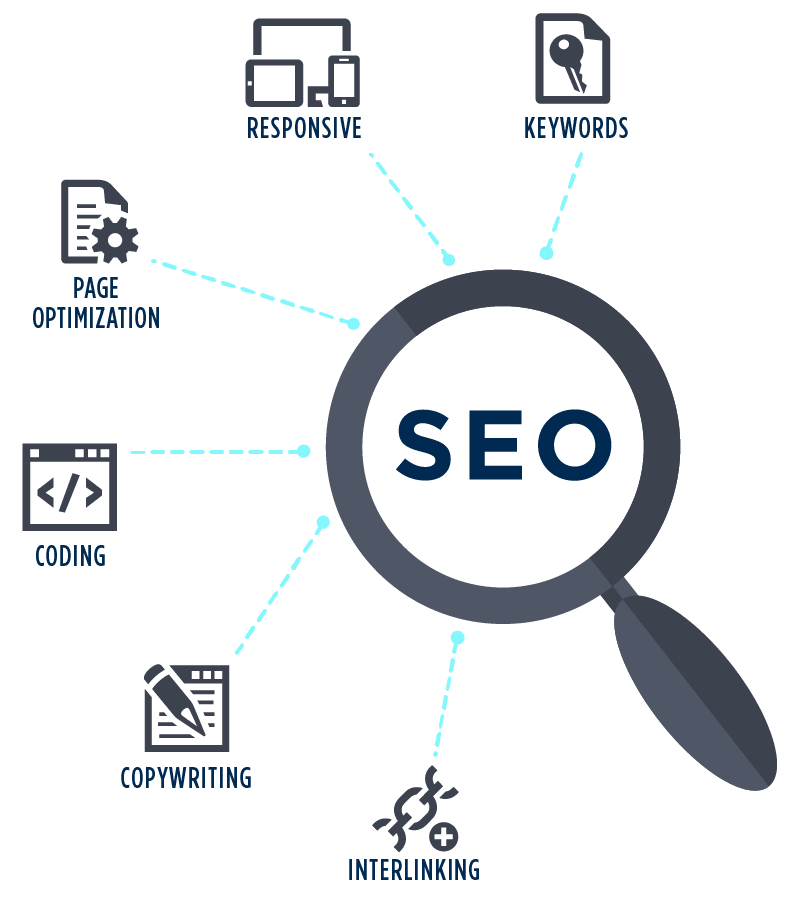Uncovering SEO
Written By: Bryson Cutler
 How do you find what you’re looking for online? The approach customers use to find businesses to service their needs has certainly changed over the years. Think about it for a minute—when you search for a desired product where do you look first? In the past you
would open up the local phone book, find the category, and then call a company. Nowadays with a click of a button or just by asking Siri or Google we can search online and find the most relevant results. We trust the search engine to give us exactly what we’re looking for.
How do you find what you’re looking for online? The approach customers use to find businesses to service their needs has certainly changed over the years. Think about it for a minute—when you search for a desired product where do you look first? In the past you
would open up the local phone book, find the category, and then call a company. Nowadays with a click of a button or just by asking Siri or Google we can search online and find the most relevant results. We trust the search engine to give us exactly what we’re looking for.
Consumers are reliant on Google and other search engines to answer every question, so it is invaluable for businesses to achieve placement and visibility of top results in searches for keywords and terms related to their business. Search Engine Optimization (SEO) as defined by Search Engine Land is “the process of getting traffic from the ‘free,’ ‘organic,’ ‘editorial’ or ‘natural’ search results on search engines.” This is not a new concept and depending on the search term or keyword it can be very competitive to achieve high placement and visibility. Whole careers are now dedicated to work on SEO daily and many digital marketing firms offer this service to businesses.
So how does SEO work? The process is complex and constantly changing year in and year out. I’ve heard search engines most simply described as a kind of librarian. In order to find exactly what “book” you’ve requested there needs to be a system in place to find it in the library. In this case, the search engine “librarian” analyzes every page on the web to find exactly what you are looking for. Each search engine has a “secret recipe” called an algorithm to turn the analyzed information into relevant search results that you see. The website and webpage must be seen as significant and relevant by the algorithm’s many factors to be ranked highly for a keyword.
These algorithm factors are split into two categories: on-the-page factors and off the-page factors. The website publisher has direct control of the on-the-page factors. One factor is keywords, a common term in SEO lingo. Keywords refer to the terms that users search for in order to find your website. This is a major part of the factors a company can control. Therefore, it is critical to have quality content rich with the target keywords in the right places on the page. If the content has substance, contains quality images and is directly related to the keywords, the algorithm will see the page as relevant to that keyword search. However, it is possible to over-optimize with too many keywords, so you must have a good balance and follow industry guidelines.
Another aspect of SEO that can be directly controlled by the web developer is the architecture and HTML design of the web page. The page must be responsive and work well on all devices from desktop computers to smartphones and tablets. The page must load quickly and it must have all the required HTML coding elements that the search algorithm will analyze. Failure to optimize these elements will lead the search engine to believe the site is not relevant, so it will not rank high. Just making simple design changes on these factors can have an impact on your rankings.
The most complex part of SEO, one that is totally out of the control of the web developer, is off-the-page factors. This is completely influenced by readers, visitors and other publishers. Some of the elements that the algorithm looks at are if the content is shared often on social networks such as Facebook, Twitter and LinkedIn. This is a good sign to the search engine that it has a good social reputation. Google likes this and they also like it when other trusted quality sites link to your site’s content. They see these as indicators that your content is relevant and should be ranked high. There are many other off-page factors that affect SEO. Nobody really knows what Google and other search engines factor in the most to their algorithms. People at Google may not even completely know. However, the industry consensus is that all off-page and on-page factors are key in some form or other.
One thing about SEO is pretty clear: it’s complicated. No matter how complicated it may be, it’s absolutely essential for companies to optimize SEO techniques. Without doing so their digital presence will suffer. Potential customers won’t be able to find the business and thus will not know the company offers a particular product
or service. According to Moz.com, “SEO will never die so
long as websites compete for attention and placement
in the search engines.”
I love learning about SEO. It is fascinating and I learn something new every day. I enjoy utilizing techniques I’ve learned to improve the Med One digital presence. Next time you search on Google you will now in a small way understand the process behind the search results you see.

